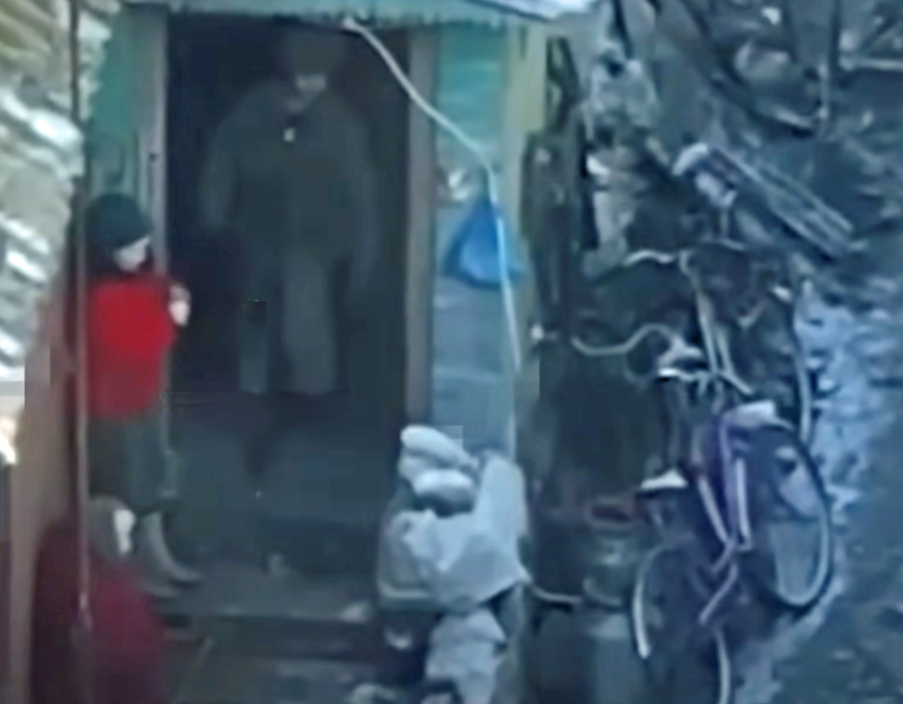Residents in the Moldovan region of Transnistria are facing a frosty start to 2025 -- with no heating, no hot water and widespread electricity shortages after Russia halted gas supplies to the separatist republic.
Cut off from decades of virtually free energy from Moscow, authorities have been forced to shut factories, close schools and encourage locals to collect firewood to heat their stoves.
JOIN US ON TELEGRAM
Follow our coverage of the war on the @Kyivpost_official.
“It’s 16 degrees (Celsius inside)... We have layered up and are trying to drink warm tea and warm water,” said Svetlana Gazul, a 58-year-old school teacher.
“We try to stay at home, under a blanket,” she told AFP by telephone.
Gazul lives in Grigoriopol, a town of 10,000 on the banks of the Dniester river, which separates the mostly Russian-speaking territory of Transnistria from the rest of Moldova.
The region declared its independence at the collapse of the Soviet Union but is internationally recognised as part of Moldova.
For decades it has relied on Russia’s support and Moscow’s decision to cut gas deliveries on 1 January plunged Transnistria into what its leader has called an “unprecedented” energy crisis.
- Food fears -
At the moment, there is enough gas for some to warm their stoves -- but not for central heating or hot water.
And authorities say those supplies for cooking will last barely a month.
Electricity is being rationed, with four-hourly rolling blackouts introduced across the territory.

Russian Propagandist’s Husband Keosayan in Coma: Rumors Link Illness to Ukrainian Intel
The massive use of plug-in electricity heaters has pushed the Soviet-era grid to the brink of collapse, authorities have warned.
Some people have died of carbon monoxide poisoning after leaving stoves on overnight for warmth, including an elderly couple, according to authorities.
Officials have rejected accusations of being abandoned by Moscow, instead pointing the finger at the government in the Moldovan capital of Chisinau.
It has rejected Gazprom’s demands to pay hundreds of millions of dollars in what the Russian energy giant said was debt owed to it for Transnistrian supplies.
The breakaway republic had for years been passing on the bills to Moldova, essentially getting free gas in an agreement accepted by Moscow.
The rest of Moldova -- which until January received electricity from a Transnistrian power station powered by Russian gas -- has started importing from Romania to cover the shortage.
A week into the crisis and none of the sides appear willing to back down.
In Grigoriopol, Eleonora Cercavschi, a 64-year-old headteacher of a Romanian-language school, fears the situation could even lead to food shortages.
“So far everything (in the stores) is there. But what will it be in a week, two weeks, because every day the situation is changing?” she told AFP via phone.
“Bread is only available in the morning. If you don’t manage to buy it, there’s none left in the evening.”
With factories closed or switching to night shifts, she worries about rising unemployment and falling incomes.
- ‘Living for free’ -
In the Transnistrian capital Tiraspol, 47-year-old blogger Yury Statsky also thinks the crisis “is likely to get worse”.
The area’s main power plant has switched to using coal but only has stocks until mid-February.
Like local leaders, Statsky blames the pro-European Union government in Moldova.
“The reasons for the situation are clear -- authorities in neighbouring Moldova decided to use the end of Russian gas transit via the territory of Ukraine to put pressure on the residents of Transnistria,” he told AFP.
Ukraine halted the transit of Russian gas on January 1, the same day Moscow cut supplies to Transnistria.
Gas used to flow across Ukraine to Transnistria but Chisinau says Russia could have used an alternative pipeline route that goes via Turkey and up through the Balkans.
“The only beneficiary of this situation is the authorities in Chisinau,” he said.
Not everybody in the Russian-backed republic agrees.
“How can Moldova be to blame if for more than 30 years it hasn’t controlled this territory?” asked Cercavschi.
“You have to pay your bills, not live off other people,” the teacher added, referring to the republic’s reliance on handouts from Moscow.
But it is unclear if that message cuts through.
For Gazul, the local pro-Russia, anti-Moldova, anti-West propaganda is strong.
“They are zombified,” she said.
You can also highlight the text and press Ctrl + Enter






